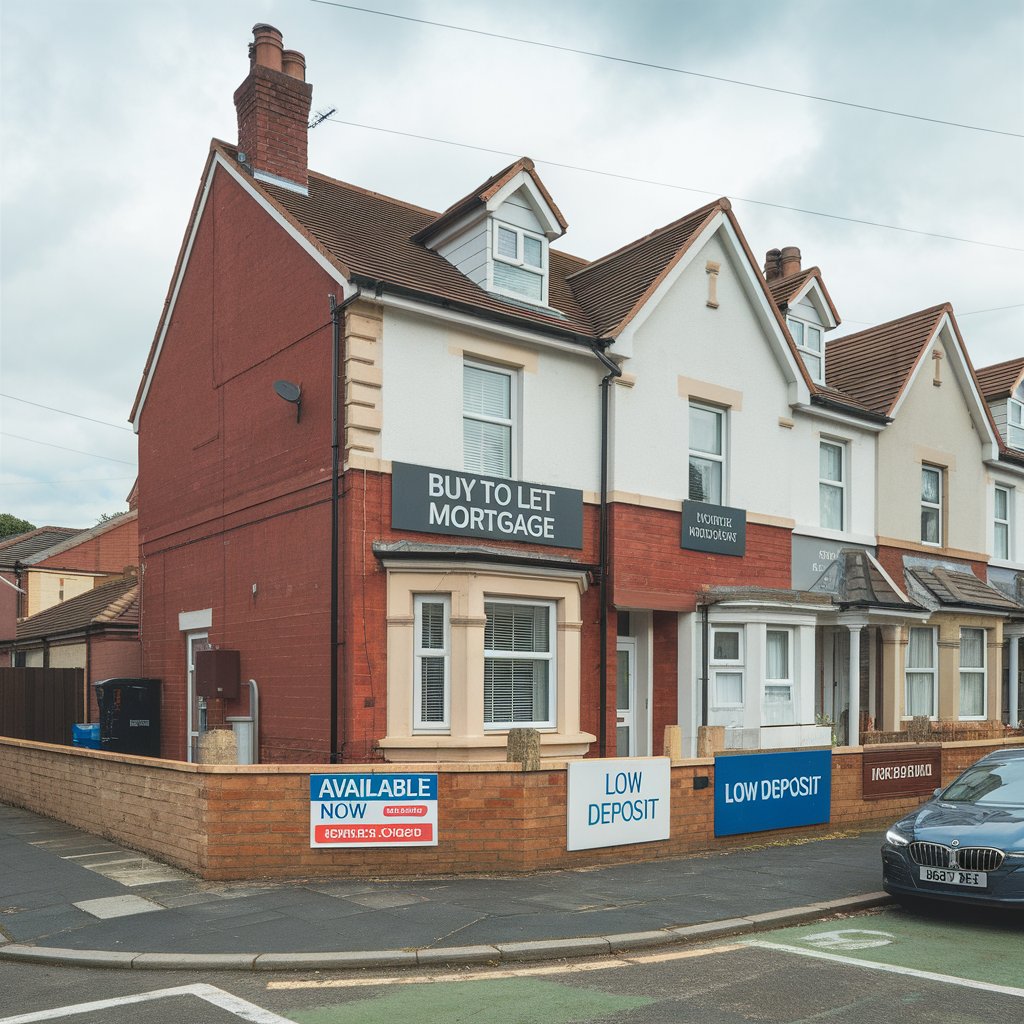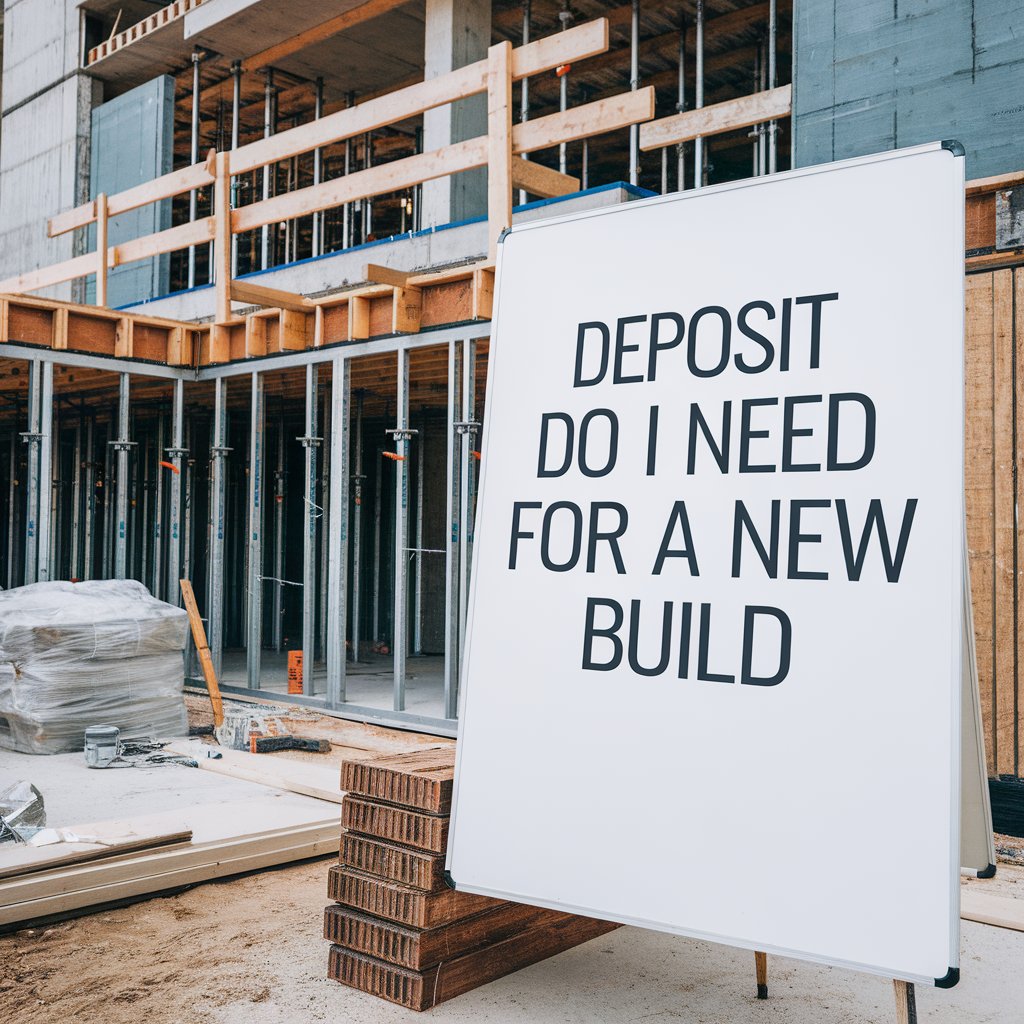Searching for the ideal mortgage can sometimes feel like looking for a needle in a haystack. The array of options and terms available can become quite perplexing swiftly.
Many of us have trodden the same path, struggling to comprehend precisely what data we need to provide to a mortgage broker to secure the most favourable deal for our homes. Intriguingly enough, a significant 60% of borrowers still choose to traverse this intricate market with professional guidance, highlighting the crucial role of brokers.
During our investigation of mortgages, we grasped that asking your mortgage broker the correct questions could genuinely result in significant benefits. This post serves to guide you to those vital inquiries that secure appealing rates and also provide proof to ensure your mortgage aligns explicitly with your unique needs.
How to Find the Right Mortgage Broker for Your Needs
From grasping the fundamentals, identifying a suitable mortgage broker becomes essential for securing your desired home. We persistently emphasise the significance of collaborating with an accredited mortgage broker.
They should have a Certificate in Mortgage Advice and Practice (CeMAP) and be regulated by the Financial Conduct Authority (FCA). This guarantees they maintain elevated professional standards and provide counsel that favours you.
Assessing a broker’s expertise and reputation involves more than validating their credentials. Consult friends, relatives, or estate professionals for recommendations to locate a trustworthy adviser.
An excellent mortgage broker will supply transparent information about their fees—whether they invoice you directly or earn a commission from the mortgage lender—and discuss all feasible mortgage options to facilitate a well-informed choice.
What Qualifications Should a Mortgage Broker Have?
A qualified mortgage adviser or broker must hold specific credentials to offer you the best service. They must have passed the Certificate in Mortgage Advice and Practice (CeMAP) or an equivalent qualification recognised across the United Kingdom.
This ensures they possess the essential knowledge about mortgages, laws related to them, and how these apply within the property market.
We also check that each broker is regulated by the Financial Conduct Authority (FCA). This regulation guarantees they follow strict rules designed to protect clients like yourselves.
It means your mortgage broker will act in your best interest when helping find a mortgage deal suited to your needs.
How to Evaluate a Broker’s Experience and Reputation
After familiarising ourselves with the qualifications of a mortgage broker, our next step is to assess their experience and reputation. A good starting point involves checking their registration with the Financial Conduct Authority (FCA).
This ensures they meet regulatory requirements for professional conduct. Furthermore, experienced brokers often showcase a history of successful transactions. Look out for testimonials on their website or independent review platforms.
Positive reviews from past clients can offer valuable insights into the level of service you might expect.
Key Evaluation Points:
- FCA registration and regulatory compliance
- Client testimonials and independent reviews
- Experience with your specific mortgage type
- Number of lenders they work with
- Years in business and market knowledge
We also recommend asking about their experience in dealing with mortgages that match your specific needs, whether a first-time buyer mortgage loan or a buy-to-let mortgage. A broker’s ability to navigate various lenders and find the best deal indicates competence and understanding of the market.
What are the Advantages of Using a Mortgage Broker?
We recognise that finding the best mortgage deal can be challenging for first-time buyers, homeowners, and real estate professionals. Using a mortgage broker simplifies this process significantly.
Mortgage brokers can access various mortgage products from multiple lenders, not just a single bank’s offerings. This means they can search the market for a suitable deal that suits your needs perfectly, whether you’re aiming to buy your first home or want to remortgage.
Another significant advantage is that brokers often have exclusive deals not available directly from lenders, potentially saving you money over the term of your loan. They also manage the application process, reducing paperwork and stress.
Key Advantages:
- Market Access: Wide range of products from multiple lenders
- Exclusive Deals: Access to broker-only mortgage products
- Expert Guidance: Professional advice tailored to your situation
- Application Management: Reduced paperwork and stress
- Complex Cases: Expertise with poor credit or self-employment

How Can a Broker Help You Find the Best Mortgage Deal?
A broker can be instrumental in helping you find the best mortgage deal. They have access to various mortgage products from multiple providers, some of which may be outside your domain.
Their deep understanding of the mortgage market allows them to compare deals, considering your financial situation and needs. This means they can find mortgages with lower interest rates or better terms than you might find on your own.
A good broker will assess all available options, ensuring that the mortgage chosen aligns perfectly with both your immediate financial circumstances and long-term property goals.
Moreover, brokers use their expertise to guide you through every step of applying for a mortgage. They’ll explain complex terms in simple language and handle paperwork, making the process less stressful for first-time buyers or those moving home.
Why Use a Mortgage Broker Over a Lender?
Opting for a mortgage broker rather than communicating directly with a lender is advantageous for first-time buyers and homeowners alike. Brokers possess an extensive portfolio of mortgage products from various providers, extending beyond the limitations of a single lender’s options. This distinction highlights the key difference between mortgage broker and lender, where a broker compares multiple options across the market while a lender only offers their own products.
This implies they can assist you in discovering the mortgage that fits your requirements, frequently offering improved rates or more agreeable terms than you could secure independently.
Their in-depth understanding of the market empowers them to align clients with deals that have a high likelihood of approval, optimising time and minimising worries.
Broker vs Direct Lender:
Mortgage Broker:
- Access to multiple lenders and products
- Impartial advice and comparison
- Personalised service based on your needs
- Expertise in complex cases
Direct Lender:
- Limited to their own products only
- May not offer the best deal available
- Less flexibility in complex situations
- Potential bias towards their products
Do Brokers Charge a Fee, and How Are They Compensated?
Mortgage brokers play a key role in assisting you find the mortgage that suits your needs, whether you’re a first-time buyer or looking to refinance. They connect you with various lenders and mortgage products to secure the best possible deal for your situation.
A common question is whether brokers charge a fee for their services. The answer varies; some brokers may charge a fee directly to you, whilst others receive a commission from the lender after successfully arranging the mortgage.
Broker Compensation Models:
Commission-Based: Broker receives payment from the lender (no direct cost to you)
Fee-Based: You pay the broker directly (typically £500-£2,000)
Hybrid Model: Combination of commission and client fees
The way brokers are compensated depends mainly on their business model and the agreements they have with lending institutions. Despite this potential conflict of interest, good brokers aim to balance their compensation by ensuring they meet your financial needs and help you get approved for your mortgage application.
What Questions Should You Ask Your Mortgage Broker?
As we assist first-time buyers and homeowners through the mortgage process, one crucial step is prominent: posing the relevant queries to your mortgage broker. You’ll want to begin by querying about the range of mortgage products they provide.
This enquiry initiates discussions on fixed-rate mortgages, adjustable-rate mortgages, and other specific alternatives that could match your financial situation. It’s about identifying a broker and verifying they can supply a customised solution that conforms to your distinct requirements.
“Selecting the ideal mortgage carries the same weight as choosing the perfect home.”
What Types of Mortgage Products Do They Offer?
We provide a broad selection of mortgage products to suit every need. This includes First-Time Buyer Mortgages, which are perfect for those stepping onto the property ladder. Our Remortgages can help homeowners find better rates or different terms.
For clients looking to move home, we provide Moving Home Mortgages. And for investors expanding their portfolios, our Buy-to-Let Mortgages are ideal.
Common Mortgage Products:
- First-Time Buyer Mortgages: Designed for property ladder entry
- Remortgages: Better rates or terms for existing homeowners
- Moving Home Mortgages: For those relocating properties
- Buy-to-Let Mortgages: Investment property financing
- Self-Employed Mortgages: Specialist products for business owners
- Bad Credit Mortgages: Options for those with credit issues
How Can a Broker Help You Find the Right Mortgage?
Choosing the right mortgage can feel like a maze. A broker acts as a guide through this complex process. They have access to a wide range of mortgage products from various lenders.
This means they can find deals that might not be directly available to you from the whole of market. Their knowledge is especially valuable for first-time buyers who may find the market overwhelming.
A broker evaluates your financial situation and recommends mortgages that fit your needs. They look at how much you want to borrow and your monthly repayment capacity. They also consider any future plans you might have, ensuring the mortgage deal they suggest is flexible enough for your lifestyle changes or unforeseen circumstances.
What Is the Mortgage Application Process?
Applying for a mortgage may appear involved, but we’re present to direct you through every phase. Here’s a comprehensive guide on what you must learn about the mortgage application process to ensure you acquire the best deal and expedite your approval.
- Check your credit score: An advantageous credit score elevates your chances of securing a superior mortgage. Lenders utilise this to estimate if you’re a dependable borrower.
- Save for a deposit: Typically, you’ll require 5-20% of the property’s valuation. The larger your deposit, the more favourable your mortgage terms could be.
- Compile the necessary paperwork: You will need evidence of income, identification documents, bank statements, and proof of residence for your mortgage application.
- Locate a mortgage broker: Brokers can assist you across the market and locate deals that fit your requirements.
- Decide on the mortgage category: Whether it’s fixed-rate or variable, opting for the suitable mortgage style is pivotal.
- Obtain an agreement in principle (AIP): This signifies how much a lender might propose to you based on a preliminary evaluation.
- Initiate your property search: With an AIP in possession, estate agents regard you more positively.
- Propose on a property: Once approved, inform your broker or lender at once to proceed with the comprehensive mortgage application.
- Complete Mortgage Application: Submit full application with all supporting documents.
- Property Valuation: Lender arranges professional valuation of the property.
- Final Approval: Lender makes final decision and issues mortgage offer.
- Exchange and Completion: Legal process completed with solicitors.
What Are the Steps to Get Your Mortgage Approved?
Getting your mortgage approved involves a series of essential steps. We want to guide you through this process with ease and confidence.
What Documents Are Required for a Mortgage Application?
Organising your paperwork is key when securing a mortgage. We recognise how daunting it can be, notably for first-time buyers or those considering refinancing. Here’s a rundown of everything you need to compile:
Required Documents Checklist:
- Verification of identity and address: Passport or driving licence and recent utility bill or council tax statement
- Bank statements from the last three months: Lenders use these to gauge your income and expenditure
- Payslips from the previous three months: These validate your salary if you’re an employee
- Evidence of bonuses or commission: Separate documentation if it significantly influences your total earnings
- SA302 form for those self-employed: Tax returns and income for the preceding two to three years
- Evidence of deposit: Documentation to confirm your savings or any funds gifted by relatives
- Credit report: Some lenders might request this to evaluate your credit history
- P60 form from employer: Discloses the income tax you’ve paid on your salary
- Benefits statements: If you claim benefits, lenders might request these documents
- Other income documentation: Rental, investments, or other income streams
How Can You Increase Your Chances of Approval?
Gathering all the appropriate paperwork for your mortgage application sets a solid foundation. Next, maximising your chances of approval is imperative. We recommend reviewing your credit report at the early stage of the process.
This lets you fix inaccuracies and comprehend how lenders perceive your financial wellness. A commendable credit score could provide access to superior mortgage rates and offers.
Tips to Improve Approval Chances:
- Check and improve credit score: Review credit report and fix any errors
- Maintain job stability: Avoid changing jobs during application process
- Save larger deposit: Reduces lender risk and improves terms
- Reduce existing debts: Improves debt-to-income ratio
- Avoid new credit applications: Multiple applications can harm credit score
- Register on electoral roll: Helps verify identity and address
Maintaining an uninterrupted job and saving for a more substantial deposit notably increase your chances. Lenders interpret job stability as a sign of consistent income, which is vital for loan repayment.
What Should First-Time Buyers Know About the Process?
First-time buyers must know about the entire mortgage process to navigate it successfully. Understanding what you’re stepping into can make a huge difference in your home-buying experience.
You must know how much you need to save for a deposit, typically between 5% and 20% of the property’s value. Also, getting familiar with the different types of mortgage products available is crucial since this choice will impact your financial future.
First-Time Buyer Considerations:
- Government Schemes: Help to Buy, Shared Ownership, First Homes Scheme
- Lower Deposits: Some lenders offer 5% deposit mortgages
- Stamp Duty Relief: Potential savings on property purchase tax
- Agreement in Principle: Shows sellers you’re a serious buyer
- Additional Costs: Survey, solicitor, valuation, and moving costs
First-time buyer mortgages come with specific requirements and opportunities, such as lower deposit percentages or government schemes aimed at helping new entrants in the housing market.

Conclusion
Progressing with knowledge for first-time buyers, we’re geared up to assist everyone – buying your first home, shifting abodes, or investing in property. Our mission is unambiguous: We strive to provide smooth and comprehensive personal finance guidance throughout the mortgage journey.
Involving a broker can simplify this procedure. They extensively understand mortgage products, lender criteria, and the local market.
Our team assures every client receives custom advice suited to their distinct condition. Be it getting optimal rates or handling the application process, we are dedicated to assisting our clients to obtain their dream homes with assurance and minimum stress.
Keeping in mind key questions for a mortgage broker will guide you correctly to property ownership. Confidence in a good relationship with a competent broker can change this experience from intimidating to manageable, paving the way for superior financial decisions for your upcoming years.
This information is for guidance only and does not constitute financial advice. Always seek professional advice from FCA authorised mortgage advisers before making any mortgage decisions. If you have a complaint about mortgage advice, you can contact the Financial Ombudsman Service free of charge.





